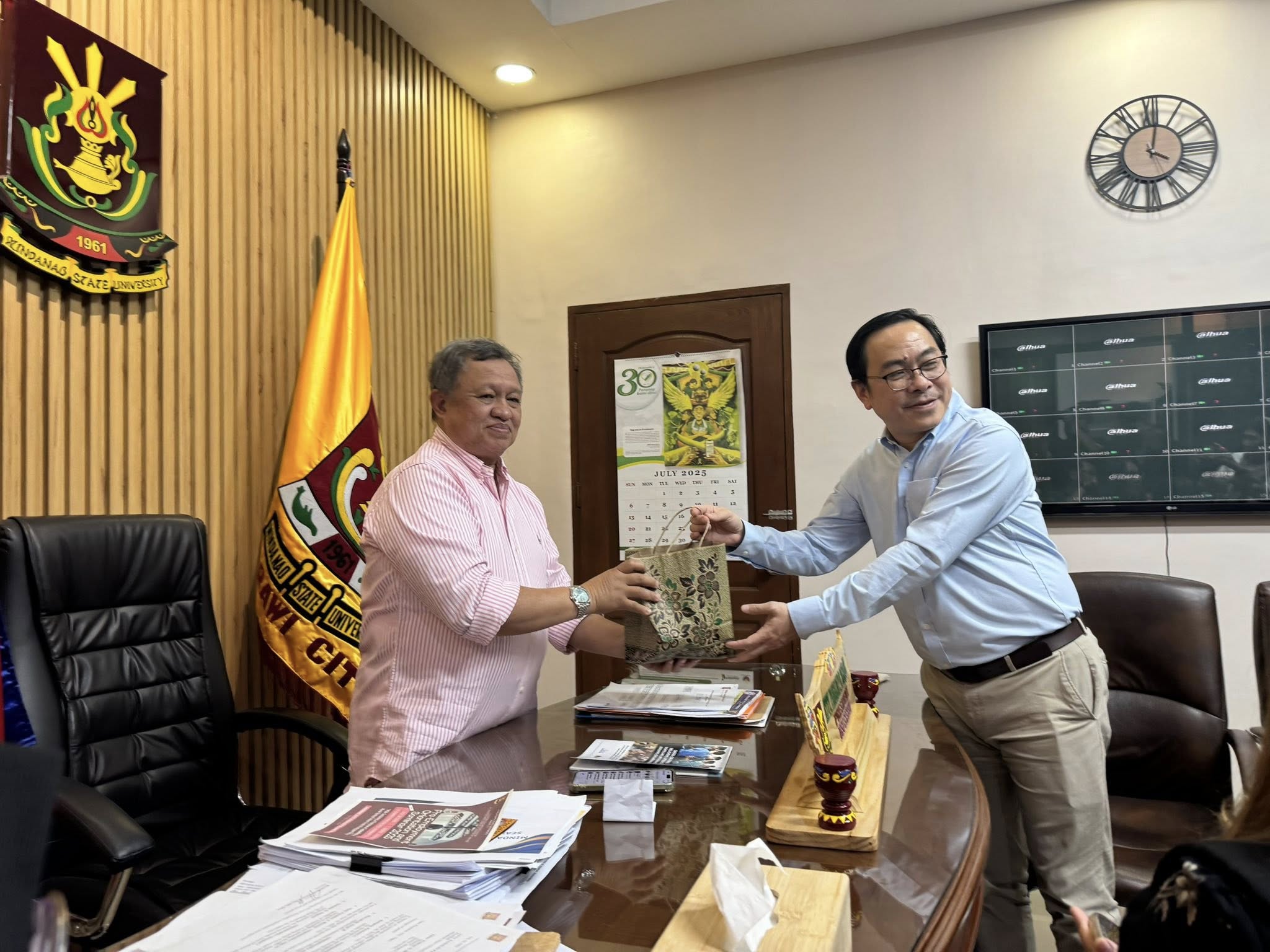By Aliah Pacalna Cali-Pascan, JD., DPA
Marawi City, Philippines – Mindanao State University (MSU) in Marawi welcomed a delegation from the Indonesian Leimena Group, partners of the Philippine Center for Islam and Democracy (PCID) headed by Madam Amina Rasul, for an insightful afternoon of exploratory discussions on July 23, 2024. The visit aimed to foster collaboration in promoting cross-cultural religious literacy and strengthening peace initiatives, with new MSU System President Atty. Paisalin P.D. Tago playing a key role in the potential partnership.
The Indonesian delegates, led by Executive Director Matius Ho, were guided by Atty. Salma Rasul of PCID. The discussions centered on critical issues, including Preventing and Countering Violent Extremism (PCVE), a core focus for MSU Marawi. A key proposal emerged from the talks: the development of a Youth Peace Security certificate course, designed to equip young individuals with the necessary tools for peace advocacy. Furthermore, the integration of cross-cultural religious literacy as a new framework for mutual respect was discussed, suggesting its incorporation into the fundamental peace education curriculum.
The meeting saw the participation of key MSU officials, including Vice President Dr. Alma Berowa and Dr. Melba Angni from the Internationalization and Linkages Offices, who joined the exploratory discussions. Representing the Institute for Peace and Development in Mindanao (IPDM) were Executive Director Dr. Acram Latiph, alongside Dr. Aliah Pacalna Cali-Pascan, Dr. Khayronesah Abbas, Prof. Almahdi Alonto, and Prof. Cora Mangelen, and other officials.
Beyond the formal discussions, the Leimena Group also took the opportunity to visit the renowned Aga Khan Museum. They were warmly received by no less than the Museum’s Director, Dr. Linang Macabalang, showcasing MSU’s rich cultural heritage.
Following their comprehensive engagement with the IPDM and the museum, the Leimena Group proceeded to the Office of the President to meet with MSU’s new System President, Atty. Paisalin P.D. Tago. Also present during this significant meeting was Dr. Minerva Mambuay Naga, Chairperson of the Transition Committee. The meeting provided an opportunity to present the outcomes of their discussions and explore potential partnerships and collaborations with the Leimena Group.
These collaborations may involve the revision and integration of the manual for Fundamental Peace Education and/or the implementation of the proposed Youth Peace and Security Certificate Program. The visit underscores a shared commitment to fostering peace, understanding, and educational advancement in the region.



